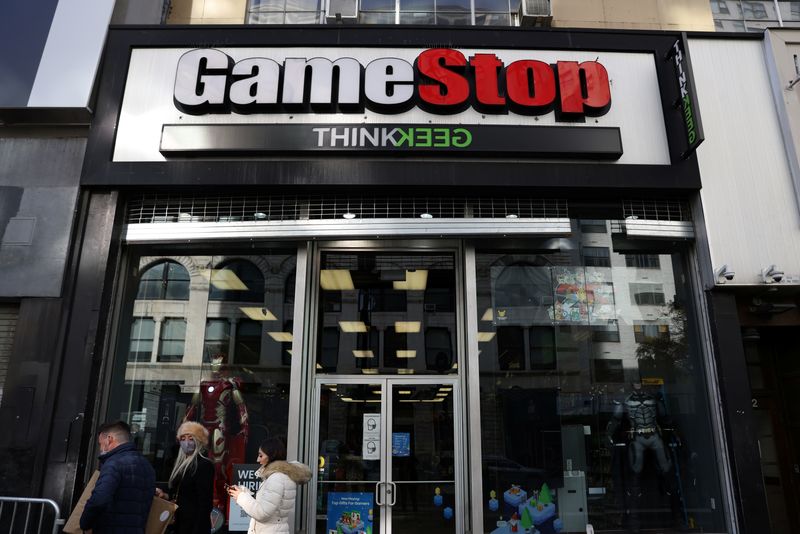(Reuters) -Video game retailer GameStop Corp (NYSE:GME) on Thursday reported a net loss for the fourth quarter, as it absorbed high costs from supply constraints and also raised spending to pivot its largely brick-and-mortar business towards e-commerce.
The company's shares, which were at the heart of the 2021 meme stocks saga, fell 7% in extended trading.
"The combination of supply chain issues and the Omicron variant had a sizable impact on this past year's holiday season," Chief Executive Officer Matt Furlong said on an earnings conference call.
Usually, the holiday quarter is a strong one for the company as new Xboxes and Playstations are launched and demand is high. But component shortages and other supply chain issues, which had hit console makers like Sony (NYSE:SONY) and Microsoft (NASDAQ:MSFT), impacted GameStop's business.
Like many other retailers, GameStop has already suffered as the pandemic wreaked havoc with curbs leading to store closures. The spread of the Omicron variant further exacerbated the situation.
The company's net sales rose 6.2% to $1.88 billion, while its gross profit fell 15.7% during the quarter ended Jan. 29.
Wedbush Securities analyst Michael Pachter noted that the company's gross profit fell "due to exceptionally poor gross margins."
"It's likely that used game sales were low and lower margin than normal and that hardware sales were higher than normal."
GameStop has also been ramping up spending to hire talent, expand capacity, grow its e-commerce presence and also introduce new products to boost its digital presence.

The company on Thursday also said it intends to launch its marketplace for non-fungible tokens or NFTs by the end of the second quarter of fiscal year 2022.
The company posted a net loss of $147.5 million, or $1.94 per share, during the quarter, compared with a profit of $80.5 million, or $1.19 per share, a year earlier.